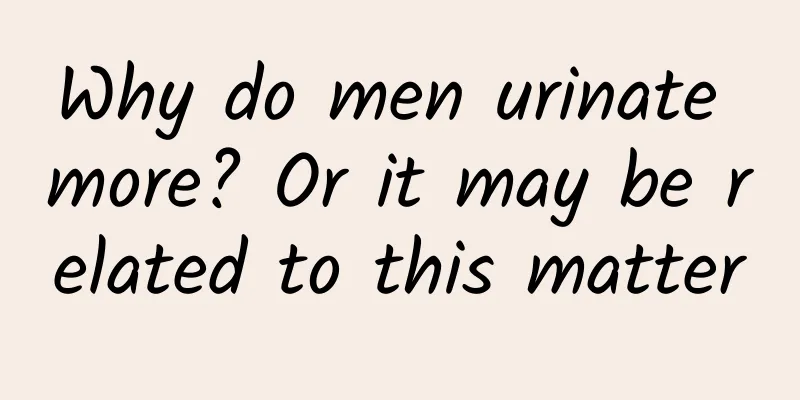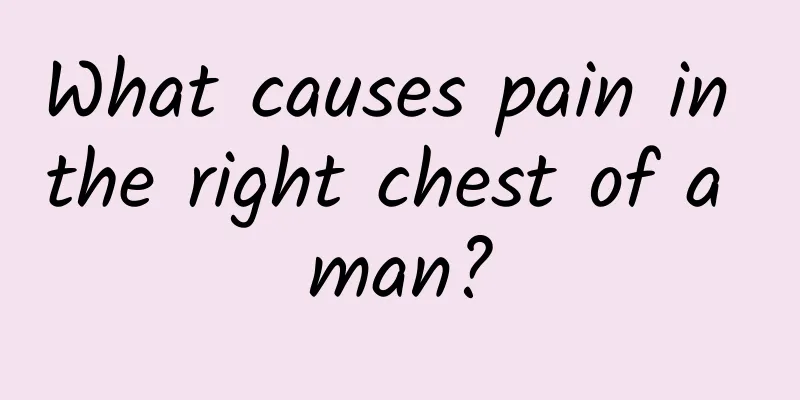Why do men urinate more? Or it may be related to this matter

|
Generally speaking, if men do not drink a lot of water, they will not urinate very often. In the hot summer, they may only defecate two or three times a day due to sweating. However, many men defecate very frequently and urinate a lot. Why is this? (1) Increased urine volume: When the urine volume increases, the frequency of urination will also increase accordingly. Under physiological conditions, such as drinking a lot of water, eating watermelon, and drinking beer, due to the increase in water intake, through the regulation of the kidney, the urine volume increases, the frequency of urination also increases, and frequent urination occurs. Under pathological conditions, such as some patients with diabetes and diabetes insipidus who drink a lot, have a large amount of urine and urinate frequently, but they do not feel any discomfort when urinating. (2) Inflammatory triggers: When the bladder is inflamed, the urinary center is in an excited state, resulting in frequent urination and reduced urine volume. Therefore, frequent urination is an important symptom of cystitis, especially acute cystitis and tuberculous cystitis. Other diseases such as prostatitis, urethritis, pyelonephritis, chronic male genital capitis in children, vulvitis, etc. can also cause frequent urination. Under the stimulation of inflammation, frequent urination, urgency, and urinary incontinence often occur at the same time, which is called urinary tract irritation syndrome, commonly known as "tri-urinary syndrome". (3) Urinary dysfunction: Certain factors, such as prostatitis, can cause excessive contraction of the urethral sphincter, leading to bladder outlet obstruction and residual urine formation, causing urine to flow back into the prostate, which can not only bring in pathogens, but also directly stimulate the prostate, inducing sterile "chemical prostatitis", causing abnormal urination and pelvic pain, etc. Many patients with prostatitis have a variety of urodynamic changes, such as decreased urine flow rate, functional urinary tract obstruction, detrusor-urethral sphincter dyssynergia, etc. (4) Non-inflammatory triggers: Such as urinary tract stones and foreign bodies, usually with frequent urination as the main manifestation. (5) Reduced bladder capacity: Such as bladder space-occupying lesions, tuberculous bladder contractions or larger bladder stones. (6) Psychoneural diseases: Frequent urination occurs only during the day or before going to sleep at night, often due to nervousness or hysteria. It may also be accompanied by urinary urgency and nausea. |
<<: Egg + Olive Oil Six Tips to Shrink Facial Pores
>>: Low blood pressure and fast heart rate are unbearable. How to treat it?
Recommend
What are the symptoms of urinary tract infection in men?
If a male friend's urinary system is infected...
What causes bad breath in men?
It is a common phenomenon for men to have bad bre...
Can Yang Wei be cured?
Impotence is a relatively common male disease, wh...
Left testicular pain in men
The testicular health of male friends actually ne...
What is the reason for the dull pain on the right side of the male lower abdomen?
Abdominal pain is not only experienced by women, ...
How long does it take for a broken glans to heal?
The glans is an important male reproductive organ...
The dangers of anemia in men
As the saying goes, men are the backbone of the f...
What are the causes of testicular cysts?
Many men think that the chance of developing repr...
Is wolfberry tea a potency tea?
Middle-aged men are prone to kidney deficiency, w...
Men with facial hair
Hair is necessary not only for humans but also fo...
Sexual concentration training and conditioning for men with impotence
Impotence is a symptom of a young man who cannot ...
Healthy diet for men
If you want to have a healthy body, you need to p...
What to do if a boy has a big butt
In modern society, apart from women who pursue a ...
Bleeding seven days after circumcision
What to do if the foreskin is long? Everyone know...
Causes of male infertility
In modern society, with the continuous increase o...









